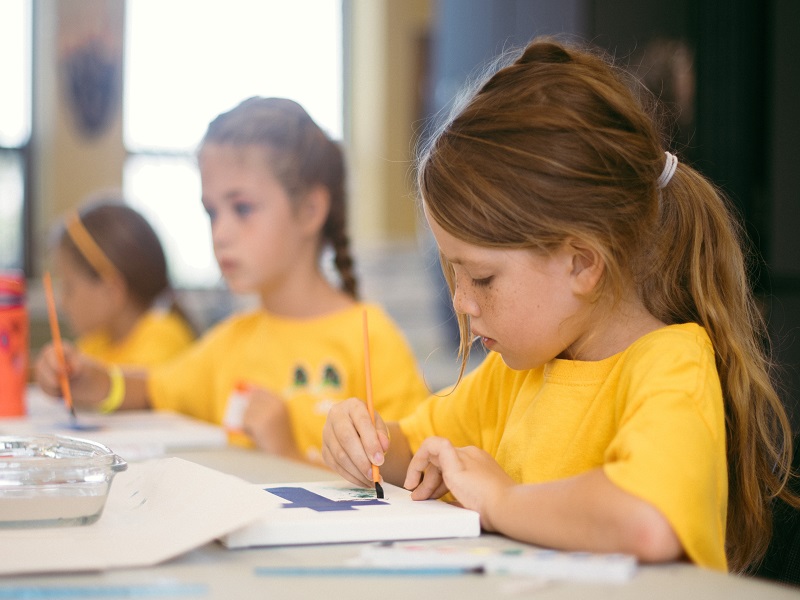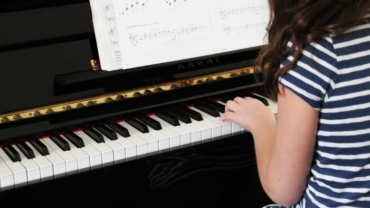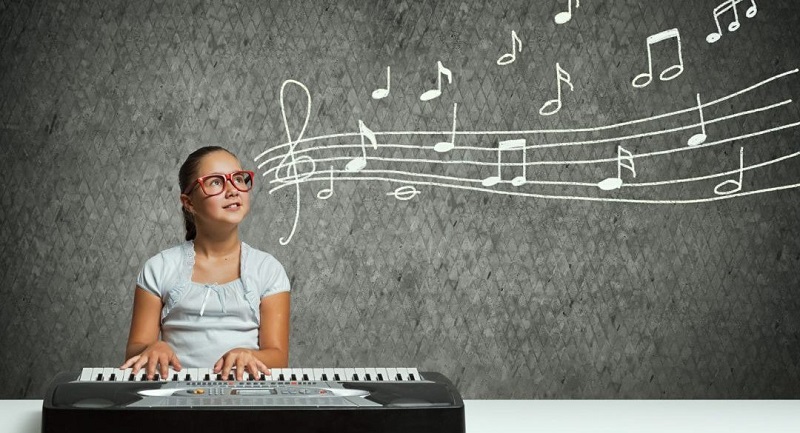via flowkey: Did you know that when you’re learning to play the piano you are actually improving several skills that will help you be more successful in other areas such as university or work? In fact, multiple studies link the study of music to increased success in other fields, as this article from the New York Times points out.
So what is it that makes musicians more successful in life? Here is a list of six essential skills that you will master by practicing the piano:
1. Playing the piano sharpens your concentration
When you’re playing the piano, you have to focus on the rhythm, pitch, tempo, note duration, and several other things. Even though your’re doing something you acutally enjoy, this is really a multi-level concentration exercise.
In fact, studies have shown that every time a musicians picks up his or her instrument, there are fireworks going on in his or her brain (for more information, see this Ted Lesson). Playing an musical instrument is perhaps the only activity during which almost all brain areas are simultaneously activated.
2. Playing the piano teaches you perseverance
Learning new songs on the piano takes time and effort. Until you can actually play a song fluently by heart, you’ll probably spend several weeks practicing it. As you look forward to being able to play the song, you stay motivated, learn patience, and increase your perseverance. These skills will always help you when you are confronted with difficult tasks at school, university, or at work.
3. Playing the piano teaches you discipline
Playing the piano can be quite challenging. However, practicing frequently and working hard will not only teach you perseverance, but also discipline. Consider the parts of the song you will have to practice over and over again. There is one “magic key” to successfully playing the piano (and yes, I will share it with you, just like that): practice, practice, practice.
Practicing regularly requires discipline. Maybe at the beginning it will be harder for you. Maybe you have to come up with some little treats to get yourself there. However, slowly but surely, you’ll get used to it and being disciplined about your practice time won’t be hard at all
4. Playing piano improves your time management skills
Many of us have quite busy schedules. Unfortunately, scientists haven’t found a way to make one day last more than 24 hours yet. So to get all your activities and duties done, you need to organize them. When you get used to practicing regularly, you also learn how to use your time efficiently and how you can use a 20-minute time slot for a quick piano lesson.
5. Playing the piano improves your emotional intelligence
Playing the piano enhances your listening skills. These are also very important when you interact with other people. Emotions are not only expressed by facial expressions and body language, but also by the tone of voice, the speed of speech, and the melody of speech. People who play an instrument are better listeners, and it is not surprising that studies have actually revealed that musicians are more perceptive in interpreting the emotions of others.
6. Playing the piano increases your memory capacity
Playing the piano stimulates your brain. While you learn and play songs, the stimulated areas of your brain become larger and therefore more active. The areas that are responsible for the storage of audio information, particularly, are more developed in musicians then in non-musicians.
So when you play the piano, your ability to memorize audio information increases. The chance of saying something like: “I’m sorry! Maybe you told me, but I really don’t remember…” most likely will occur less often.
Isn’t it amazing what playing the piano can do for you? If you’ve always been looking for an excuse to pick up that tricky piano, well, here — now you’ve got more than one. 🙂






